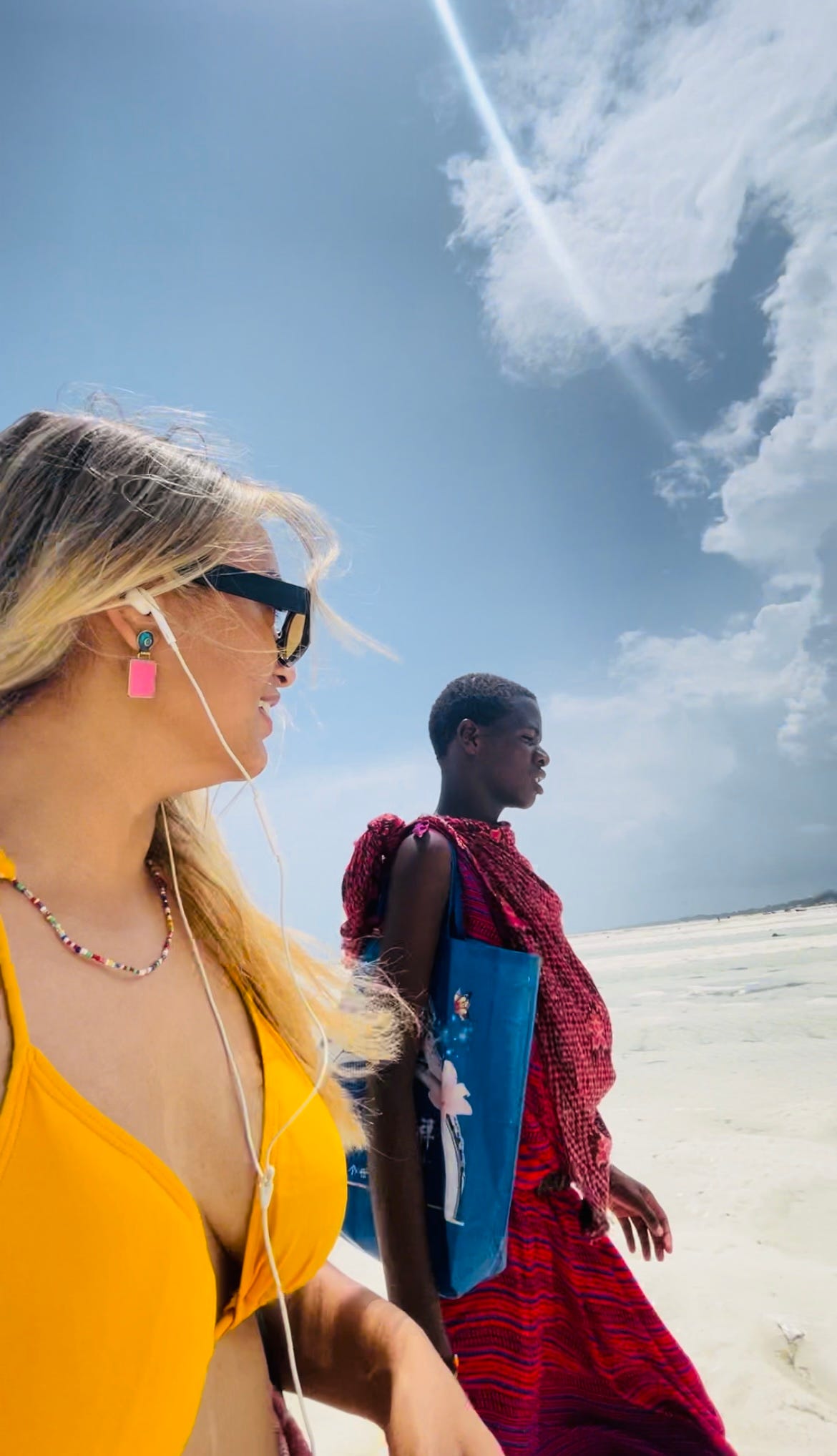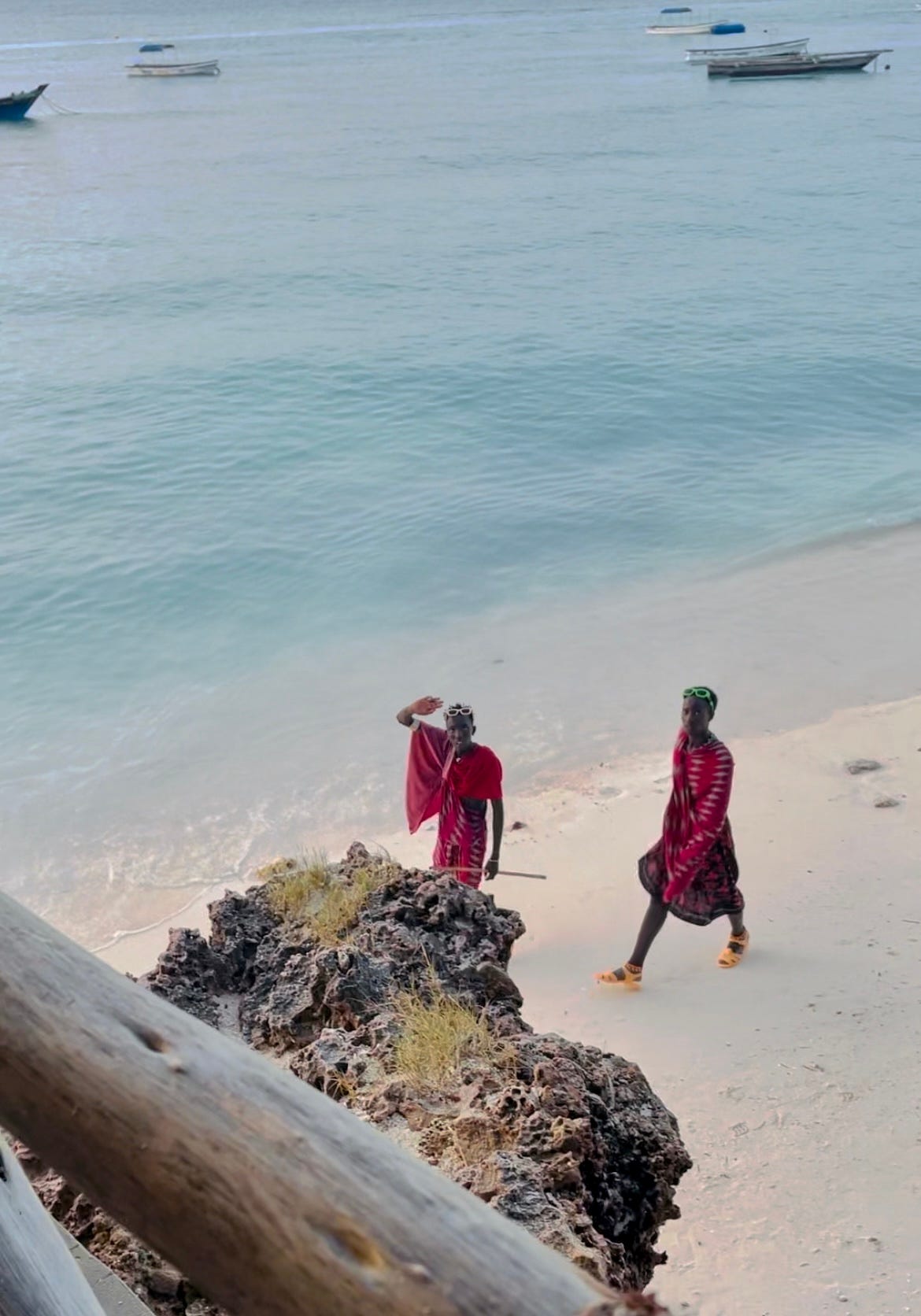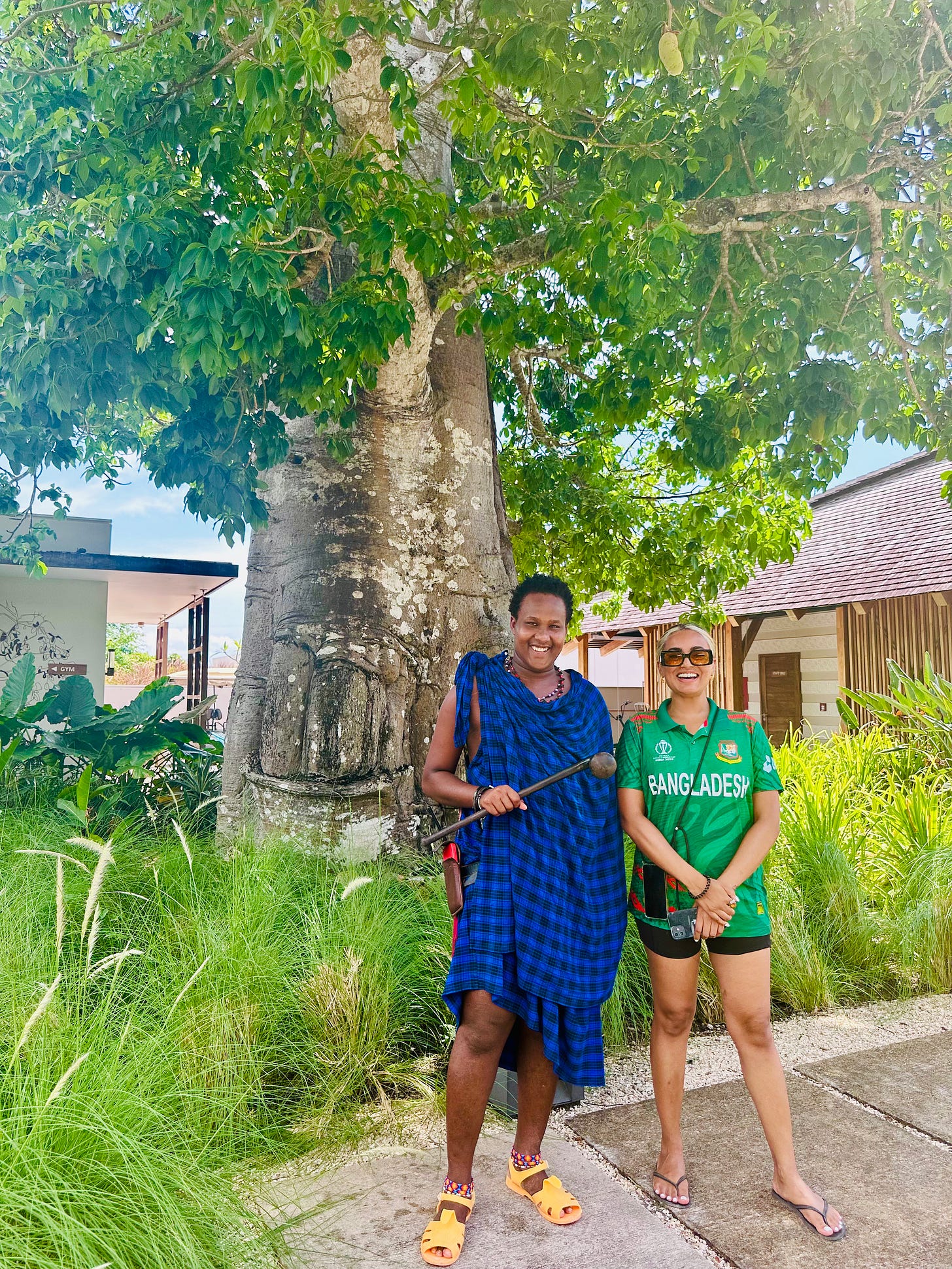Beyond the Brochure: Maasais and Sex Tourism in Zanzibar
Zanzibar, hailed as a paradisiacal haven where azure waters meet pristine sands, reveals a different reality beneath its shimmering facade.
The picturesque images of Maasais strolling along the shore, their vibrant red robes fluttering in the ocean breeze, belie a darker truth. For some, Zanzibar isn't just a vacation spot—it's a place where people struggle to make ends meet.
Every time a Maasai approached me for a chat, I saw it as a chance to delve deeper into this particular subject. I wasn't exactly drawn to them romantically and had zero interest in anything remotely intimate, but my curiosity was insatiable. I also probed many local men, but the topic seemed shrouded in taboo, despite sensing that the entire island was somehow entangled in the narrative.
Initially, discussions were cautious, but as trust brewed, the men unspooled their tales, steering clear of the term "sex work." Instead, it was more like, “Oh, they cover meals, drinks, hotel stays, and fun times. Sometimes, there are even Western Union transfers into the boys' accounts.” It was akin to a sugar mummy and sugar baby dynamic.
I also ventured to ask some women on holiday there about their reactions when approached by these men, and surprisingly, they often expressed feeling acknowledged and valued. I pondered whether this stemmed from coming from a place where such warm and open approaches from men are rare. Picture a guy in London with that same vibe; it would be downright odd. Once again, the term "sex work" never surfaced, yet the women felt flattered. Splurging on drinks and meals there is insignificant to them, hardly registering as payment because it is that cheap.
In some ways, Zanzibar is like Africa's version of Thailand, but with a twist. Older white European women visit to be 'loved' by local men. While Phuket offers similar attractions like beautiful beaches and great food, Zanzibar's vibe is different. Here, pleasure goes beyond just a vacation; it's tied to power dynamics and exploitation.
During my time there, I witnessed something intriguing unfold before my eyes every day: white European women mingling openly with younger black local men or Maasai men. It was a fascinating sight, something I'd heard of but hadn't truly seen until then. You know, it's like the flip side of what you might expect in Thailand—older white men with young Thai women. But here, it was different. They walked hand in hand, shared meals, relaxed, and danced together. It was surreal, to say the least. Refreshing? I don’t know about that.
In Zanzibar, when you hear "beach boys," it's not about the iconic band but rather local men hustling around the beach areas. They do all sorts of things to catch tourists' attention—guided tours, selling stuff, entertaining, and striking up casual chats. But here's the kicker: some of these beach boys aren't just looking for a friendly chat; they're after something more intimate or transactional. That seems to be where their focus lies but it’s softer you know. Like they really are charming.
The rise of Maasais turning to sex work on Zanzibar's stunning beaches over the past 15 years exposes the harsh realities lurking beneath paradise's surface. These individuals, deeply rooted in their cultural heritage of tradition and resilience, now confront a stark reality of economic desperation and social turmoil. Unlike other places, trafficking networks don't seem as organised here; it's more of an individual endeavor rather than reporting to a mafia boss to share profits, as is often seen in organised crime linked to sex work. The Maasais, like many marginalised communities, stand at the crossroads of tradition and modernity, grappling with societal expectations while striving for economic survival.
On the other hand, there's another layer to this complex tale. Many women engage in these relationships without viewing it as traditional sex work. They genuinely believe in the sincerity of these men's affections and allow financial comfort to cloud their judgement. However, when reality sets in and it's time to depart, they're often left with a profound sense of emptiness. Some have even taken to social media, creating support networks for those who perceive to have been "swindled". It's a poignant reminder of the human longing for connection and the sometimes harsh consequences of misplaced trust.
I resonate with the experiences of both sides, but when this isn't the norm in your everyday life, why expect it to be different here? Nothing comes without a cost, even affection. Zanzibar is just one piece of a larger puzzle of female-oriented sex tourism. In Jamaica, there are "rent-a-dreads," captivating men with dreadlocks who enchant female tourists amidst reggae melodies and lush landscapes. Havana's vibrant streets host "jineteros," spinning tales of passion against a colonial backdrop. Mombasa beckons with "beach boys," offering fleeting connections amidst the soft sands. Bangkok and Pattaya's neon-lit alleys hide a community of service providers. And then there's The Gambia, where older white European women find solace in relationships with younger Gambian men, affectionately known as "bumsters."
The human need for connection knows no bounds. For some local men, tourism brings chances and challenges, blurring right and wrong.
In the shadows, a hidden economy thrives, driven by supply and demand. But even in the darkness, resilience shines through—a sign of communities joined by shared struggles and dreams.
In the end, Zanzibar's beauty masks deeper issues within its tourism industry, prompting a call to action maybe? Beyond the thrill of adventure, lies a responsibility to confront uncomfortable truths beneath the surface of wanderlust. And regardless of one's perspective on the matter, it goes back to what was Zanzibar intended for then?
The track I’ll leave you with you with today is Love Is a Battlefield by Pat Benatar.
Love,
Rez







Great read, Rez.
You’re the second person I know to approach this topic. I’m from Trinidad where it’s not quite the same but in Tobago, it is well known that local guys go to certain beaches or places for what is basically Stella Got Her Groove Back.